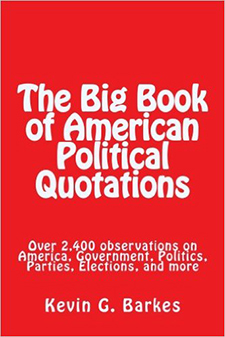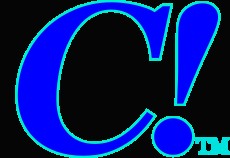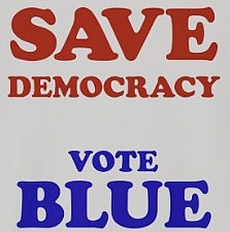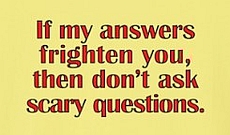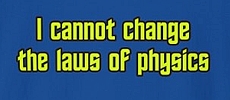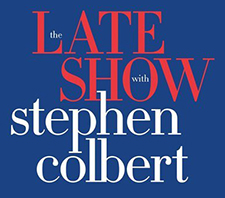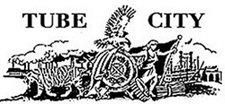
Thomas Henry Huxley PC FRS FLS (May 4, 1825 – June 29, 1895) was an English biologist (comparative anatomist), known as "Darwin's Bulldog" for his advocacy of Charles Darwin's theory of evolution. (Click here for full Wikipedia article)
-----
A man's worst difficulties begin when he is able to do as he likes.
Act decidedly and take the consequences. No good is ever done by hesitation.
All truth, in the long run, is only common sense clarified.
For every man the world is as fresh as it was at the first day, and as full of untold novelties for him who has the eyes to see them.
God give me the strength to face a fact though it slay me.
History records that whenever science and orthodoxy have been fairly opposed, the latter has been forced to retire from the lists, bleeding and crushed if not annihilated; scotched, if not slain.
History warns us, however, that it is the customary fate of new truths to begin as heresies and to end as superstitions...
I am too much of a skeptic to deny the possibility of anything.
I can assure you that there is the greatest practical benefit in making a few failures early in life. You learn that which is of inestimable importance- that there are a great many people in the world who are just as clever as you are. You learn to put your trust, by and by, in an economy and frugality of the exercise of your powers, both moral and intellectual; and you very soon find out, if you have not found it out before, that patience and tenacity of purpose are worth more than twice their weight of cleverness.
I cannot say that I am in the slightest degree impressed by your bigness, or your material resources, as such. Size is not grandeur, and territory does not make a nation. The great issue, about which hangs true sublimity, and the terror of overhanging fate, is what are you going to do with all these things?
I do not advocate burning your ship to get rid of the cockroaches.
I neither deny nor affirm the immortality of man. I see no reason for believing in it, but, on the other hand, I have no means of disproving it.
I would rather be the offspring of two apes than be a man and afraid to face the truth.
If a little knowledge is dangerous, where is the man who has so much as to be out of danger?
Irrationally held truths may be more harmful than reasoned errors.
It is better for a man to go wrong in freedom than right in chains.
It is better to have a millstone tied round the neck and be thrown into the sea than to share the enterprises of those to whom the world has turned, and will turn, because they minister to its weaknesses and cover up the awful realities which it shudders to look at.
It is wrong for a man to say that he is certain of the objective truth of any proposition unless he can produce evidence which logically justifies that certainty.
Life is too short to occupy oneself with the slaying of the slain more than once.
Logical consequences are the scarecrows of fools and the beacons of wise men.
Mathematics may be compared to a mill of exquisite workmanship, which grinds you stuff of any degree of fineness; but, nevertheless, what you get out depends upon what you put in; and as the grandest mill in the world will not extract wheat-flour from peascod, so pages of formulae will not get a definite result out of loose data.
My business is to teach my aspirations to conform themselves to fact, not to try and make facts harmonise with my aspirations.
Not far from the invention of fire... we must rank the invention of doubt.
Orthodoxy is the Bourbon of the world of thought. It learns not, neither can it forget; and though, at present, bewildered and afraid to move, it is as willing as ever to insist that the first chapter of Genesis contains the beginning and the end of sound science...
Perhaps the most valuable result of all education is the ability to make yourself do the thing you have to do, when it ought to be done, whether you like it or not
Sit down before fact as a little child, be prepared to give up every preconceived notion, follow humbly wherever and to whatever abysses nature leads, or you shall learn nothing.
So I took thought, and invented what I conceived to be the appropriate title of 'agnostic.' It came into my head as suggestively antithetic to the 'gnostic' of Church history, who professed to know so much about the very things of which I was ignorant. To my great satisfaction the term took.
Social progress means a checking of the cosmic process at every step and the substitution for it of another, which may be called the ethical process; the end of which is not the survival of those who may happen to be the fittest, in respect of the whole of the conditions which obtain, but of those who are ethically the best.
The chess board is the world, the pieces are the phenomena of the universe, the rules of the game are what we call the laws of Nature. The player on the other side is hidden from us. We know that his play is always fair, just and patient. But also we know, to our cost, that he never overlooks a mistake, or makes the smallest allowance for ignorance.
The course of the past has impressed us with the firm conviction that no good ever comes of falsehood, and we feel warranted in refusing even to experiment in that direction.
The doctrine that all men are, in any sense, or have been, at any time, free and equal, is an utterly baseless fiction.
The foundation of morality is to have done, once and for all, with lying; to give up pretending to believe that for which there is no evidence, and repeating unintelligible propositions about things beyond the possibilities of knowledge.
The great end of life is not knowledge but action.
The great tragedy of Science- the slaying of a beautiful hypothesis by an ugly fact.
The known is finite, the unknown infinite; intellectually we stand on an islet in the midst of an illimitable ocean of inexplicability. Our business in every generation is to reclaim a little more land, to add something to the extent and the solidity of our possessions.
The man of science has learned to believe in justification, not by faith, but by verification.
The man who is all morality and intellect, although he may be good and even great, is, after all, only half a man.
The mediaeval university looked backwards: it professed to be a storehouse of old knowledge... The modern university looks forward: it is a factory of new knowledge.
The method of scientific investigation is nothing but the expression of the necessary mode of working of the human mind.
The only freedom I care about is the freedom to do right; the freedom to do wrong I am ready to part with on the cheapest terms to any one who will take it of me.
The only good that I can see in the demonstration of the truth of 'Spiritualism' is to furnish an additional argument against suicide. Better live a crossing-sweeper than die and be made to talk twaddle by a 'medium' hired at a guinea a séance.
The only medicine for suffering, crime, and all the other woes of mankind, is wisdom.
The saying that a little knowledge is a dangerous thing is, to my mind, a very dangerous adage. If knowledge is real and genuine, I do not believe that it is other than a very valuable possession, however infinitesimal its quantity may be. Indeed, if a little knowledge is dangerous, where is the man who has so much as to be out of danger?
There are men to whom the satisfaction of throwing down a triumphant fallacy is as great as that which attends the discovery of a new truth.
To a person uninstructed in natural history, his country or sea- side stroll is a walk through a gallery filled with wonderful works of art, nine-tenths of which have their faces turned to the wall.
Try to learn something about everything and everything about something.
When Ecclesiasticism declares that we ought to believe this, that, and the other, and are very wicked if we don't, it is impossible for us to give any answer but this: We have not the slightest objection to believe anything you like, if you will give us good grounds for belief; but, if you cannot, we must respectfully refuse, even if that refusal should wreck morality and insure our own damnation several times over.
-----
(May 4 is also the birthday of Horace Mann.)
Categories: Quotes of the day, Thomas Henry Huxley
Home KGB on Bluesky KGB on Substack
KGB Stuff Commentwear E-Mail KGB
Donate via PayPal


